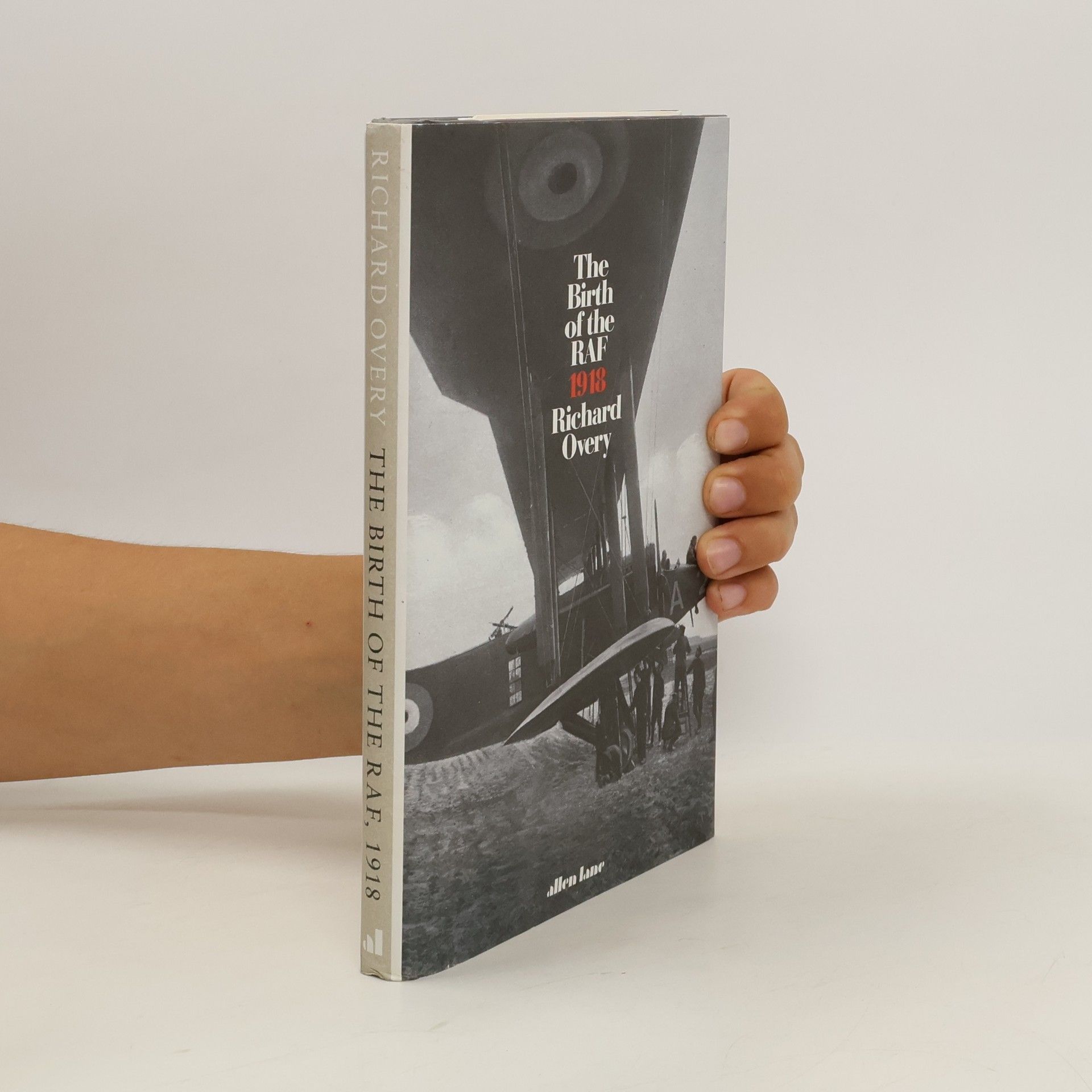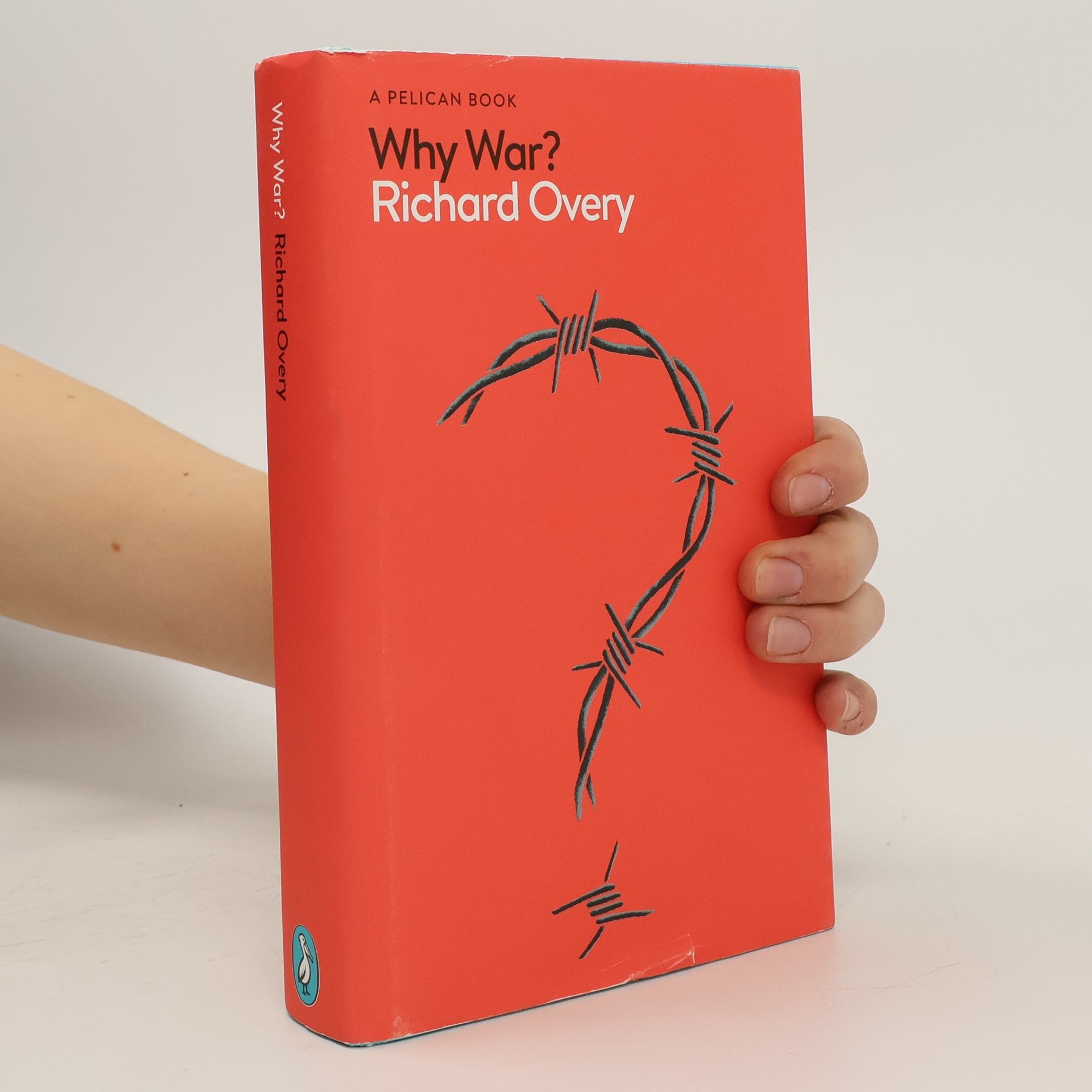Why has war been a consistent presence throughout the human past? A leading historian explains through rich examples and keen insight.
Overy Richard Book order (chronological)
Richard James Overy is a distinguished British historian whose writings delve deeply into the pivotal events of modern history, with a particular focus on World War II and the Third Reich. His analyses are lauded for their effectiveness in dispelling myths and offering original, important perspectives. Overy's scholarly approach is considered cutting-edge, providing readers with profound insights into complex historical eras and motivations.






RAF
- 149 pages
- 6 hours of reading
A great historian's masterful account of the origins of air power in the RAF.
Blood and Ruins: The Last Imperial War, 1931-1945
- 1040 pages
- 37 hours of reading
"A thought-provoking and original reassessment of World War II, from Britain's leading military historian. Richard Overy sets out in Blood and Ruins to recast the way in which we view the Second World War and its origins and aftermath. As one of Britain's most decorated and respected World War II historians, he argues that this was the 'last imperial war,' with almost a century-long lead-up of global imperial expansion, which reached its peak in the territorial ambitions of Italy, Germany and Japan in the 1930s and early 1940s, before descending into the largest and costliest war in human history and the end, after 1945, of all territorial empires. Overy also argues for a more global perspective on the war, one that looks broader than the typical focus on military conflict between the Allied and Axis states. Above all, Overy explains the bitter cost for those involved in fighting, and the exceptional level of crime and atrocity that marked the war and its protracted aftermath--which extended far beyond 1945. Blood and Ruins is a masterpiece, a new and definitive look at the ultimate struggle over the future of the global order, which will compel us to view the war in novel and unfamiliar ways. Thought-provoking, original and challenging, Blood and Ruins sets out to understand the war anew".-- Provided by publisher
Richard Overy sets out in Blood and Ruins to recast the way in which we view the Second World War and its origins and aftermath. He argues that this was the 'great imperial war', a violent end to almost a century of global imperial expansion which reached its peak in the 1930s and early 1940s, before descending into the largest and costliest war in human history and the end, after 1945, of all territorial empires. How war on a huge scale was fought, paid for and morally justified forms the heart of this new account. Above all, Overy explains the bitter cost for those involved in fighting, and the exceptional level of crime and atrocity that marked these imperial projects, the war and its aftermath. This war was as deadly for civilians as it was for the military, a war to the death over the future of the global order. Blood and Ruins is a masterpiece from of one of the most renowned historians of the Second World War, which will compel us to view the war in novel and unfamiliar ways. Thought-provoking, original and challenging, Blood and Ruins sets out to understand the war anew.
Contains dozens of specially commissioned maps and specially photographed items of ephemera. Published to commemorate the 75th anniversary of Victory in Europe Day (May 2020) and Victory in Japan Day (August 2020), this is an outstanding concise history of the Second World War written by one of Britain's foremost historians. The first of two volumes, World War II: The Essential History, Vol 1 (From the Munich Crisis to the Battle of Kursk 1938-43) begins by charting the period when the Axis powers reigned supreme. In little more than two years Germany, Italy and Japan had conquered much of mainland Europe, moved east into the Soviet Union and pushed the Allies out of the Far East and Pacific. It ends as the Allies finally began to stop the Axis advance in its tracks and win significant ground. From defeat on the beaches of Dunkirk and the jungles of the Philippines to victory in the North African desert, the snow-covered Soviet plains and the Pacific island of Guadalcanal. The first volume ends just as the Allies start to turn the tide against the Third Reich, with the extraordinary dramas of the Battle of the Bulge, D-Day and the race to Berlin still to come
Contains dozens of specially commissioned maps and specially photographed items of ephemera. Published to commemorate the 75th anniversary of Victory in Europe Day (May 2020) and Victory in Japan Day (August 2020), this is an outstanding concise history of the Second World War written by one of Britain's foremost historians. The second in a two-part history of the World War II: The Essential History, Vol 2 (From the Invasion of Sicily to VJ Day 1943-45) examines the Allies' long struggle for victory against Axis powers which had once seemed unbeatable. Starting with the Allied invasion of mainland Europe in the west and ending with the explosion of the atomic bombs on Hiroshima and Nagasaki in the east we are taken page by page through the gripping events which eventually saw the end of six long years of war. The concluding volume in this landmark series contains some of the most dramatic moments of the war: the use of so-called V-weapons by the Nazis to maximise civilian casualties; the unforgettable story of D-Day and the battle for Normandy; the Battle of the Bulge, which finally broke Axis power in the West; and the indescribably bloody and brutal race to Berlin that finally extinguished the Third Reich
The Birth of the RAF, 1918
- 160 pages
- 6 hours of reading
A short account of the birth of the RAF for the centenary of its founding. The dizzying pace of technological change in the early 20th century meant that it took only a little over ten years from the first flight by the Wright Brothers to the clash of fighter planes in the Great War. A period of terrible, rapid experiment followed to gain a brief technological edge. By the end of the war the British had lost an extraordinary 36,000 aircraft and 16,600 airmen.The RAF was created in 1918 as a revolutionary response to this new form of warfare - a highly contentious decision (resisted fiercely by both the army and navy, who had until then controlled all aircraft) but one which had the most profound impact, for good and ill, on the future of warfare. Richard Overy's superb new book shows how this happened, against the backdrop of the first bombing raids against London and the constant emergency of the Western Front. The RAF's origins were as much political as military and throughout the 1920s still provoked bitter criticism
Why The Allies Won
- 416 pages
- 15 hours of reading
The Allied victory in 1945 - though comprehensive - was far from inevitable. Richard Overy casts a brilliant light on the most important turning-point of the modern age.
